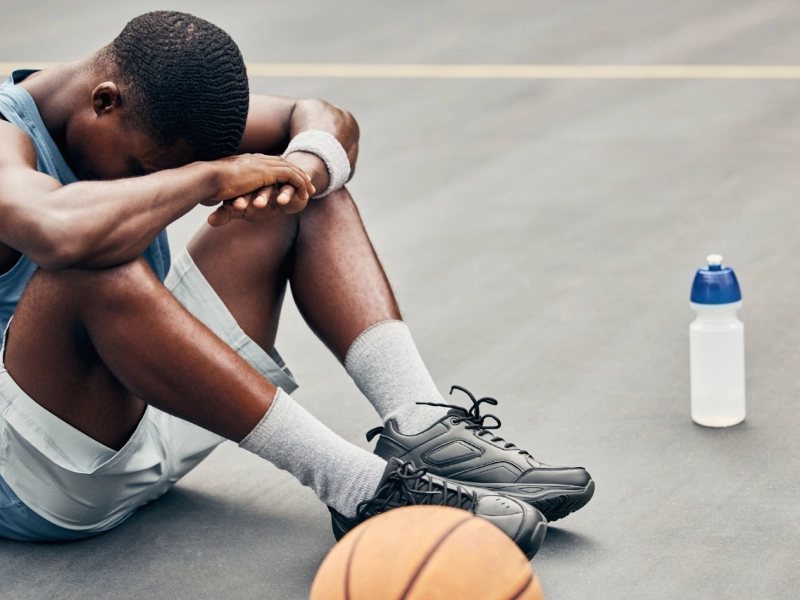Athletes in many kinds of sports depend much on mental health for performance and success. Although physical education and skill development are crucial, the psychological elements of athletic performance are sometimes disregarded. Athletes under great pressure to succeed can cause burnout, stress, and anxiety. Knowing the value of mental health will enable sportsmen to reach their objectives, increase their well-being, and maximise their performance. This paper investigates many facets of mental health in sports, stressing how it affects performance, training, and general success.

Affecting individuals' thinking, feeling, and behaviour, mental health includes emotional, psychological, and social well-being. In sports, athletes must have mental health if they are to keep resilience, motivation, and concentration. Among the particular pressures athletes face are those from public criticism, competition, and training obligations. These elements can lead to mental health issues including anxiety and sadness, which, when unaddressed, can impair performance. Both coaches and players depend on their awareness of the indicators of mental health problems. Among the symptoms might be mood swings, less drive, and trouble focussing. Sports organisations may build a supportive culture that motivates athletes to seek treatment when needed by designing surroundings that give mental health first priority. First step towards creating a better and more successful athletic environment is realising mental health in the framework of athletics.

Although athletes often deal with stress, its consequences will vary widely depending on how it is controlled. While little stress can be inspiring, too much of it can have negative effects including burnout and poor performance. High-stress events like contests or big games might set off reactions in an athlete that compromise their capacity for maximum performance. Those who develop good stress management skills can transform that into a performance booster. Under duress, athletes can remain calm and focused by means of mindfulness, visualising, and breathing techniques. Moreover, creating coping mechanisms to handle stress helps to increase general mental resilience. Understanding the link between stress and performance helps athletes to actively control it, so promoting better success.

Mental resilience is the capacity to recover from obstacles and keep concentration and will in face of difficulties. Long-term success for athletes depends critically on developing mental toughness. More suited to manage the ups and downs of competition, heal from injuries, and manage the pressures of their sport are resilient athletes. Goal-setting, positive self-talk, and building a strong support system are just a few of the several ways training for mental resilience might incorporate. Establishing reasonable and attainable goals helps sportsmen remain driven and attentive on their development. Good self-talk helps one to overcome negative ideas and develop a more hopeful attitude. Having a coaching staff and supporting team can also help one get direction and hope under trying circumstances. Athletes that give mental resilience top priority will improve their capacity to negotiate obstacles and realise their athletic goals.

Encouragement of mental wellness among athletes is much aided by coaches and support staff. The way a coach approaches mental health can affect an athlete's performance and general state of affairs. Coach who provide open communication, sensitivity, and understanding a priority help athletes feel free to share their mental health issues. Essential is teaching coaches to identify indicators of mental stress and arming them with techniques to help athletes. Workshops and instructional courses might enable coaches acquire abilities to properly handle mental health problems. Including mental health resources—such as sports psychologists or counselors—into training courses also helps athletes get the support they require. Encouragement of mental wellness in a culture will help coaches and support staff greatly increase the achievement of an athlete.
Although physical rest is usually connected with recovery, athletes also depend much on mental recuperation. Downtime helps athletes reenergise mentally, therefore lowering the burnout risk and enhancing general performance. Participating in extracurricular activities such hobbies, socialising, or relaxation methods helps athletes keep a good balance in their life. Athletes should be urged to give mental healing top priority within their training program. This can entail scheduling time for mindfulness, self-care, or leisure activities encouraging calm. Athletes who understand the value of mental recovery can shar their concentration and drive, which will eventually help to produce better performance. Long-term athletic success depends on a balanced training program including mental rehabilitation.
Developing a supportive atmosphere for athletes depends on increasing knowledge of mental health in sports. Athletes' well-being can be much improved by initiatives supporting mental health education, destigmatising of mental health problems, and open communication. Schools, sports teams, and local businesses can work together to create initiatives stressing mental health issues and offering tools for sportsmen. Developing ads featuring athletes who have surmounted mental health issues can motivate people to prioritise their own mental health and get treatment. Including mental health information into athlete, coach, and support staff training courses would also help to build a supportive culture. The sports community can help to guarantee that athletes have the tools they need to excel both on and off the pitch by raising mental health consciousness.